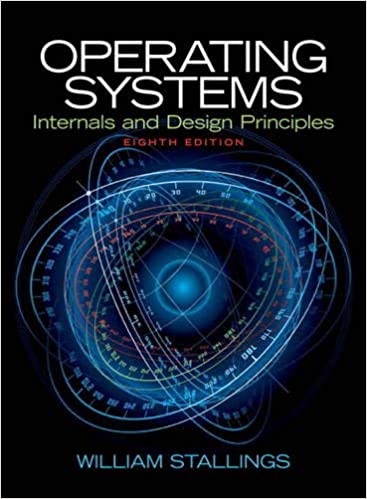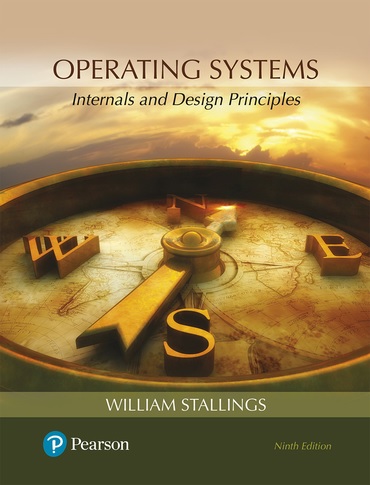| Instructors |
Dr. Woit (Sections 1-5)
Dept. of Computer Science, Toronto Metropolitan University
Office: ENG277
Tel: 416-979-5000, x7063
Email: dwoit at torontomu dot ca (see Course Email Policy below)
Office Hours: Thu 1110-1200 (Zoom)
by appointment (email Woit)
|
Dr. Melo Dos Santos (Sections 6-10)
Dept. of Computer Science, Toronto Metropolitan University
Office: ENG242
Tel: 416-979-5000, x553205
Email: glaucia at torontomu dot ca (see Course Email Policy below)
Office Hours: Wed 310-400
|
|
| TAs |
Jorge Lopez jlopez@torontomu.ca (Section 1,2,3 lab) (Lead TA)
Monty Gole mgole@torontomu.ca (Section 5,6,8 labs)
Elham Amini elham1.amini@torontomu.ca (Section 4,7 lab)
Kiana Kheiri kiana.kheiri@torontomu.ca (Section 9 lab)
|
| Prerequisites |
CPS 393, CPS 305 |
| Calendar Description |
Introduction to O/S (system calls, interrupts, synchronous and asynchronous
traps, O/S structure), using processes (process communication and
synchronization), primitive communications (signals and signal management
calls), pipes, messages, semaphores, shared memory, memory management, file
systems, and (time permitting) remote procedure calls.
|
| Compulsory Textbook |
Operating Systems; Intervals and Design Principles.
William Stallings. Either 8th or 9th Edition.
The 9th Ed is available in e-text or print from
the publisher
Used print versions abound.
|
 |
 |
|
| Reference (not required): |
references of your choice for ANSI C and Bash, such as:
http://www.gnu.org/software/bash/manual/bashref.html
C Reference Card
https://www.gnu.org/software/gnu-c-manual/gnu-c-manual.html
|
| Teaching Methods and Course Schedule |
Each week, students attend:
-
Scheduled Lectures
- Provide a more theoretical treatment of the topics covered.
- Sections 1-5 (Woit): Occur in the scheduled classroom, using a live, projected Zoom session.
Students may also attend lecture out-of-classroom by joining the live Zoom session.
- Sections 6-10 (Melo): Occur in the scheduled classroom.
-
Scheduled Labs
- Provide practical experience and TA guidance.
- Occur live, in-person, in the scheduled lab-room only, with TA in attendance.
Tests and Exam are written:
- in person, in lab rooms TBA,
- using D2L and/or using computing environment similar to CS moons, but without networking
capabilities (no internet, no ssh, no email, etc.)
- ON SATURDAYS.
Tentative Weekly Schedule:
| Week | Lecture | Lab | Tests |
| Week 1 (week of Jan 13) | Outline and
Ch1 | no lab |
| Week 2 (week of Jan 20) | Ch2 | Lab 01 |
| Week 3 (week of Jan 27) | Ch3 | Lab 02 |
| Week 4 (week of Feb 03) | Ch4 | Lab 03 | 28% TEST 1
(Ch 1-3) on Sat Feb 08 |
| Week 5 (week of Feb 10) | Start Ch5 | Lab 04 |
| Study Week (week of Feb 17) | no lecture | no lab |
| Week 6 (week of Feb 24) | Ch5 Ctd. | Lab 05 |
| Week 7 (week of Mar 03) | Ch5 End. Start Ch6 | Lab 06 |
| Week 8 (week of Mar 10) | Ch6 Ctd. | Lab 07 | 28% TEST 2
(Ch 4-5) on Sat Mar 15 |
| Week 9 (week of Mar 17) | Ch6 | Lab 08 |
| Week 10 (week of Mar 24) | Ch7 Start Ch8 | Lab 09 |
| Week 11 (week of Mar 31) | Ch8 Ctd. | Lab 10 |
| Week 12 (week of Apr 07) | Ch8 End. Start Ch9 | no lab |
|
| Learning Objectives |
The student will be able to identify, create, implement, employ, manipulate, and reason
about the OS topics and algorithms studied, within the context of the procedural
paradigm, and specifically, ANSI C and Linux Operating System. The student will
be able to solve the problems from the text, from class and labs, other similar
problems, and those that build upon them.
|
| Synopsis of Academic Focus and Scope |
The course will present both a theoretical and practical treatment of
introductory-level Operating Systems.
|
| Course Evaluation |
| Term Work | Weight | Date |
| Test 1 (Ch 1-3) | 28% | Sat Feb 08 |
| Test 2 (Ch 4-5) | 28% | Sat Mar 15 |
| Exam (cumulative) | 37% | Exam Period |
| Labs Marks* | 07% | Lab answers due Mon after corresponding Lab (11:59pm)
For due dates see: /usr/courses/cps590/Labs/LAB_DUE_DATES_AND_SUBMITTING
|
| 100% Exam | 100% |
If Exam mark is greater than weighted average above
|
| To Pass the Course | |
obtain at least 50% of the weighted average of the 3 tests
OR 50% on Exam
|
|
| Labs |
- Take place in-person, in your scheduled lab time/room. TAs attend to provide help.
- During a lab, you
- work on lab questions for that week (under: /usr/courses/cps590/Labs/)
- do your lab check-in (which must be completed DURING your
scheduled lab time, from within your scheduled lab room.)
Instructions are in /usr/courses/cps590/Labs/LAB_CHECK_INS
- Each lab requires one or more submissions. Submission instructions are in:
/usr/courses/cps590/Labs/SUBMITTING.
A lab's submissions are due by MONDAY AT NOON the week following the lab.
- Lab solutions are NOT provided; however, your TA can help you check your answers
after submission, time permitting.
- The Lead TA is: Jorge Lopez jlopez@torontomu.ca
|
| *Lab Marks |
- Labs marks have 2 components:
- Lab check-ins (as above)
- Lab submissions (as above)
- During the term, you do your check-ins, and submit required answers,
without knowledge of which will count toward Lab Marks.
- At end of term, we will announce which check-ins and which submissions count, as follows:
- Lab mark is some combination of CheckIns (C%) and marked lab
submissions (S%) , where
The exact weighting of C and S is not provided in advance.
Examples of possible C and S weightings are:
- C worth 7%, S worth 0% (100% CheckIn based)
- C worth 3.5%, S worth 3.5% (50% CheckIns and 50% marked submissions)
- C worth 0%, S worth 7% (100% marked submissions)
- etc.
- Calculating S: By the end of term, you will have
submitted answers to many individual lab questions. At end of term,
one or more of these answers will selected for grading, and their
grades will combine equally for S.
Selected answers must have been submitted by their given due
dates in order to be eligible for grading.
- Calculating C: By the end of term, it is expected
you will have done ≤10 CheckIns. At end of term, one or
more CheckIns will be selected to combine equally for C.
|
| Educational Technology |
Students are required to use bash shell and gcc C-compiler on Computer Science
moons for all course work.
|
| Evaluation Guidelines |
- Official evaluation marks are recorded on D2L only.
- Evaluations written in pencil (when applicable) will never be re-evaluated.
- Any error in grading must
be brought to the attention of the grader for that evaluation (e.g., TA or instructor)
within 24 hours of evaluation being returned (papers handed back for written evaluations,
electronic posting of grade for electronic evaluations.) Students must report grading errors
using the re-evaluation form provided on D2L.
- Normally, email/see your own lab TA if you have any questions regarding labs, marking, etc.
- To escalate the issue, email/see the Lead TA, who has final
authority on all lab and marking issues.
- The Lead TA is: Jorge Lopez jlopez@torontomu.ca
- Final Exam is cumulative (covers material from tests).
- Late submissions of any course work are not accepted.
|
| Missed Evaluations and Deadlines |
- Normally receive a mark of zero. This is the case when a student submits an undocumented
ACR, since only documented ACRs are accepted in CPS590.
- Medical certificates: If a student misses a submission deadline, or an evaluation,
they must submit a
Student Health Certificate AND an
Academic Consideration Request (ACR) within 3 working days of the missed date.
For ACR submission and requirements, see TMU Senate Policy
- Make-ups/re-weightings: Even when a documented ACR is submitted and verified,
instructor is not
required to provide a make-up or re-weighting, and may assign zero.
In special circumstances, instructor may allow a single grade re-weighting, or a
single make-up evaluation, given a verified, documented ACR.
Make-up evaluations may not have identical format,
although material covered will be the same.
- If more than one ACR is submitted in a term, the student will be
required to meet with the CS Program Director, who will investigate the issue, and may require a
change to the student's course of studies. This meeting is automatically triggered by the second
ACR, as per CS departmental policy.
-
If the missed evaluation is the final exam, students are required, in addition
to the forms mentioned above, to petition the instructor for an INC grade with the
Incomplete Grade
Request Form. To be allowed to write the makeup exam, you must send a completed Incomplete
Grade Request Form to the instructor within 3 days of the exam, and
have a verified, documented Academic Consideration Request. Without all these in place, the CS
Department will not allow you in the room to write the makeup exam.
|
| Course Email Policy |
- Emails relating to submissions are not accepted within the 24hr period before the deadline.
It is expected that by 24hrs before the deadline, you will have already completed most/all of
the work. If something unexpected comes up, just submit what you have. No extensions are given.
- Emails MUST contain "cps590" or "CPS590" somewhere in the subject (WITH NO SPACES!).
Emails without this will not be read or answered.
- It is best to see professor in class or office hours, as emails are not
guaranteed to be answered, as follows:
- Emails will be answered during office hours, time permitting, in order of
arrival (from/to proper accounts as defined below).
- Emails professor considers no longer (or not) relevant will not be answered.
- Email must be to: dwoit at torontomu dot ca
- Email must be to: glaucia at torontomu dot ca
- Email must be from: your cs account or torontomu.ca
account.
Email sent to/from any other accounts will not be answered
(e.g., gmail).
- Email questions the professor deems appropriate to the whole class will be answered in
Announcements or in class (not via email response).
|
| University Policies |
Students are required to adhere to all relevant university and departmental policies including those
found in D2L and/or on the following URLs:
http://torontomu.ca/senate/policies
https://www.torontomu.ca/cs/current-undergraduate-students/forms-policies/
|
| Resources Available at TMU |
|
| Academic Misconduct |
Generally for TMU and CS:
Academic Misconduct
Specifically for this Course:
Course Academic Misconduct
|
| Non-Academic Conduct |
see
TMU Student Code of Non-academic Conduct
|

